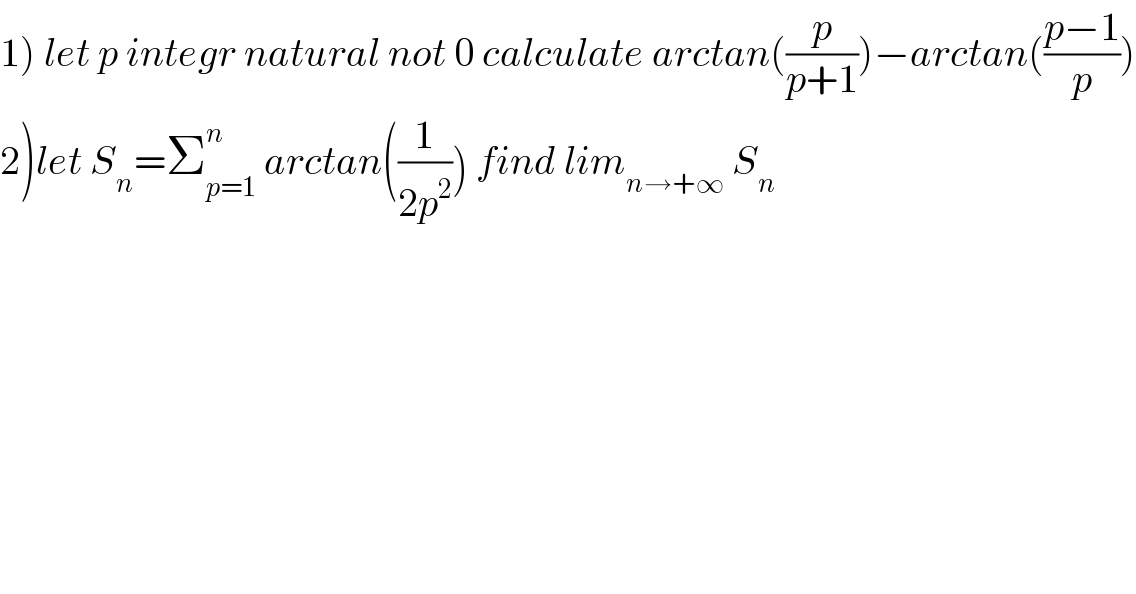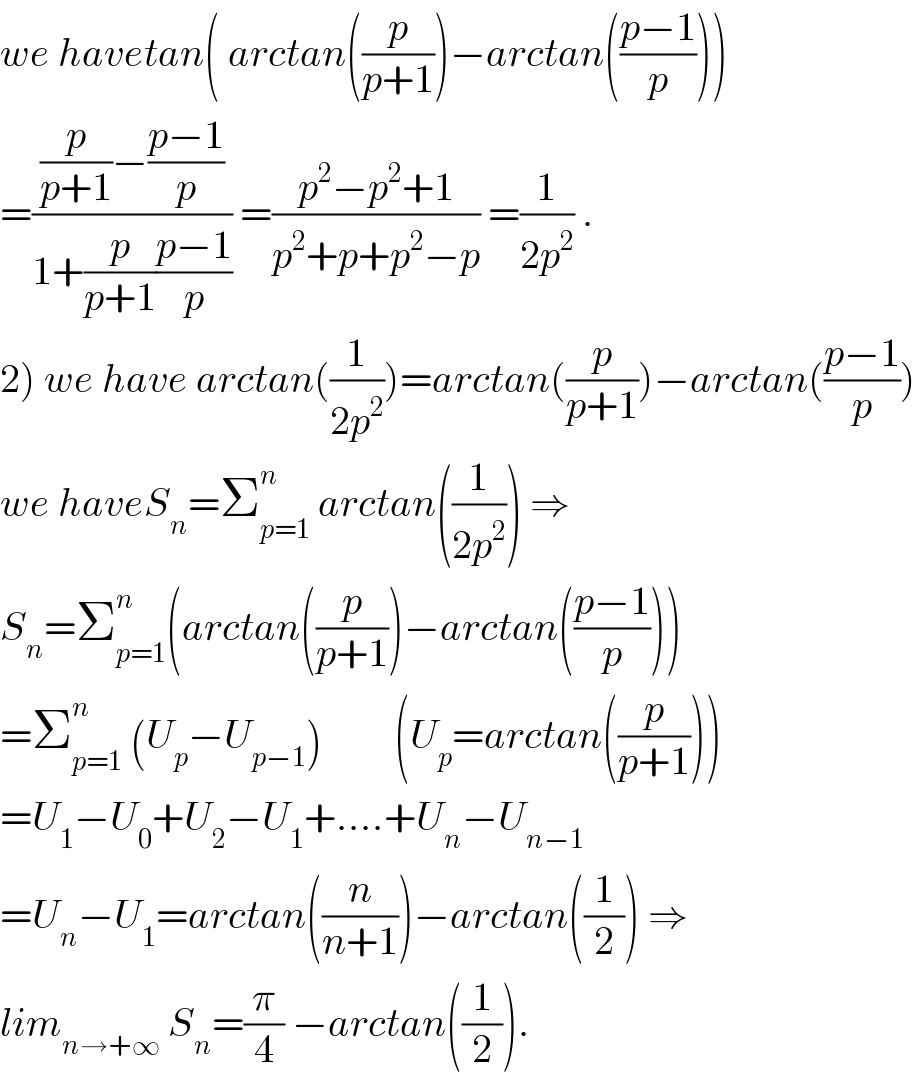
Question and Answers Forum
Previous in Relation and Functions Next in Relation and Functions
Question Number 51985 by maxmathsup by imad last updated on 01/Jan/19

Commented by Abdo msup. last updated on 19/Jan/19

| ||
Question and Answers Forum | ||
Previous in Relation and Functions Next in Relation and Functions | ||
Question Number 51985 by maxmathsup by imad last updated on 01/Jan/19 | ||
 | ||
Commented by Abdo msup. last updated on 19/Jan/19 | ||
 | ||